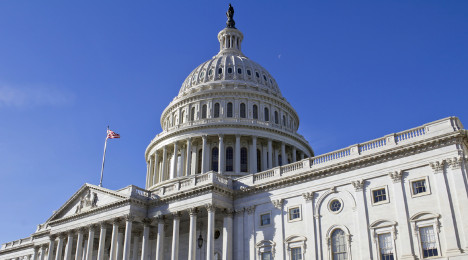7 Organizations Support Disparate Impact Amendment

By subscribing, you agree to receive communications from Auto Remarketing and our partners in accordance with our Privacy Policy. We may share your information with select partners and sponsors who may contact you about their products and services. You may unsubscribe at any time.
WASHINGTON, D.C. –
Disparate impact theory is difficult even for the most seasoned legal experts to explain, so the American Financial Services Association is seeking to make sure the use of this tactic is prudent.
AFSA and several financial services trade associations recently sent a letter asking all members of the U.S. House of Representatives to support Rep. Scott Garrett’s disparate impact amendment to H.R. 4660, the Commerce, Justice, Science, and Related Agencies Appropriations Act for Fiscal Year 2015.
Officials explained the amendment would prohibit any funds made available by the act from being used for litigation in which the Department of Justice seeks to prove illegal discrimination based on the disparate impact theory.
The amendment passed the House 216-190 on a nearly party-line vote.
The letter emphasized that all of the organizations and their member companies view illegal discrimination in housing and lending, including auto financing, as morally, ethically and legally abhorrent and do not tolerate it in any size, shape or form.
“Under the disparate impact theory, even when a lender takes every step to prevent discrimination and treats all consumers fairly and equally, a neutral policy can serve as a basis for very serious and harmful claims in the absence of intentional discrimination,” AFSA wrote along with six other organizations.
Subscribe to Auto Remarketing to stay informed and stay ahead.
By subscribing, you agree to receive communications from Auto Remarketing and our partners in accordance with our Privacy Policy. We may share your information with select partners and sponsors who may contact you about their products and services. You may unsubscribe at any time.
“Smaller lenders, in particular, will find it difficult to manage this type of litigation risk. Left unchecked, disparate impact enforcement could increase the cost and undermine the availability of credit throughout the economy,” the letter continued.
To reinforce the argument, the letter referenced the action taken against Ally Financial.
Aft the end of last year, the Department of Justice along with the Consumer Financial Protection Bureau entered into a $98 million settlement with Ally Financial and Ally Bank over allegations that it discriminated against minority borrowers in its indirect auto lending program, representing the federal government’s largest auto loan discrimination settlement in history.
“The CFPB and DOJ based their allegations solely on a disparate impact theory of discrimination. They do not allege that Ally intentionally discriminated against any consumers. This settlement was only a part of a larger joint effort between the CFPB and DOJ to address disparate impact in the auto lending market,” the letter said.
The other organizations that collaborated on the letter included:
—American Bankers Association
—Consumer Mortgage Coalition
—Credit Union National Association
—Independent Community Bankers of America
—Mortgage Bankers Association
—National Association of Federal Credit Unions
Officials closed the letter by saying, “We ask the Members of the House of Representatives to vote in favor of Representative Garrett’s amendment.”


